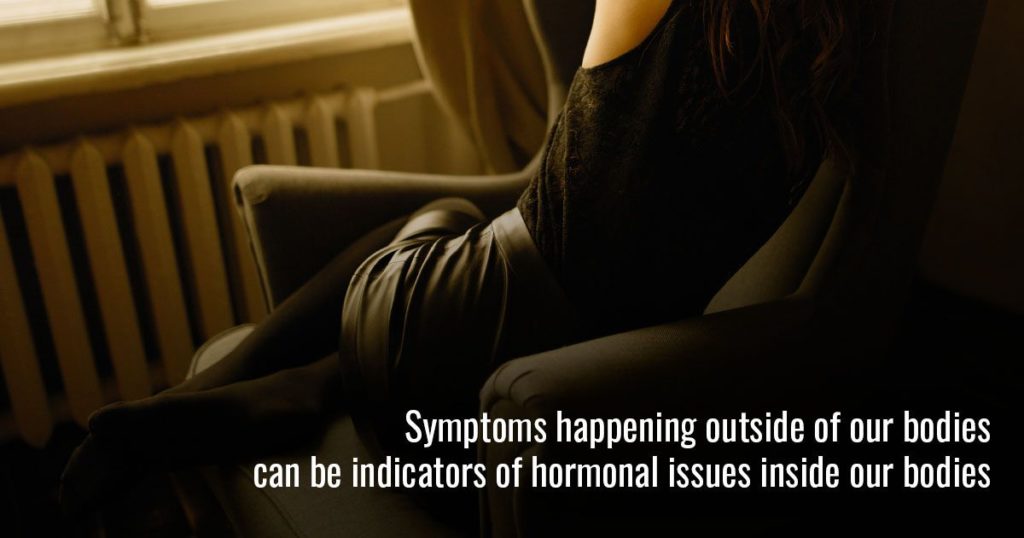This post may contain affiliate links which won’t change your price but will share some commission.
Hormonal issues can wreak havoc on people who are oblivious to the root cause. Many symptoms of a hormonal disorder mimic other disorders, or they seem unrelated to something going on inside your body because they are expressing themselves outside your body.
Let’s take a look at some outward symptoms that you may not be relating to a hormone imbalance and what you might want to share with your physician.
Hair loss- Hair loss is natural. We lose about an average of 80 strands of hair a day but sometimes hair loss is due to hormonal issues. If you are losing significant amounts of hair, it might be related to thyroid issues or PCOS – Polycystic Ovarian Syndrome.
Hair growth- Too much hair can be a sign of a hormonal imbalance. Hormones called androgens are found in men and women and are the main reason for hair growth. Too many androgens in a woman’s body can trigger excessive hair growth in unwanted areas.
Dry skin- Hormone changes from menopause or hypothyroidism can lead to dry skin. When estrogen levels drop, women experience more wrinkles and drier skin. Oil glands in the skin begin to shrink during menopause and skin can become easily irritated and itchy.
Excessive sweating and hot flashes- As hormones change in a woman’s system during menopause, other hormones are affected, causing sweating and hot flashes. These can occur while awake or asleep.
Slow-healing wounds- Slow-healing wounds can be an indicator of diabetes or other hormone issues. Neuropathy, or nerve damage, can result. Additionally, slow-healing wounds are at greater risk for infection.
Weight loss or weight gain- Sometimes weight loss or weight gain is the desired outcome due to direct action. Weight loss or weight gain that isn’t intentional may be a sign of hormonal imbalance. Losing too much too fast or gaining too much too soon without an obvious trigger is a sign you should see your physician.
Many symptoms happening outside of our bodies are indicators of disruption inside our bodies. Making a connection between the two isn’t always obvious. Routine checkups can help your care provider discover issues in your body that you might be completely unaware of. Be sure to share symptoms when you communicate with your provider and don’t worry that they may not seem like a big deal. Some symptoms may be trying to tell you something very important.


Leave a Reply